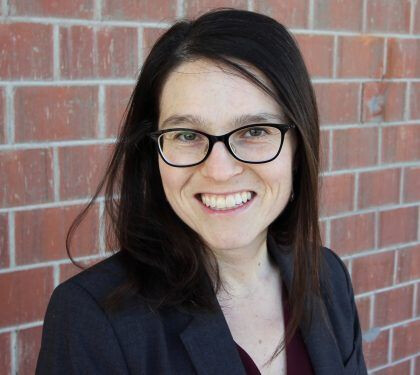AFT is elevating the role of farmers and farmland in confronting climate change and mitigating its effects in the Pacific Northwest. From policy advocacy on issues like solar siting on farmland, to trainings like these Pacific Northwest soil health webinars (watch here and here), to on-the-ground demonstration projects like our South Puget Sound Discovery Farms research, AFT is helping scale up the adoption of environmentally sound agricultural practices that ensure a resilient future for the land that sustains us.
Scaling up soil health practices isn’t easy in the Pacific Northwest. The region’s cropping systems and micro-climates are extremely varied, which makes it useless to present a one-size-fits-all approach, according to Addie Candib, AFT Pacific Northwest Regional Director.
“The constraints can be very different than in other parts of the country,” says Addie. “The findings from a soil health study in Ohio or Illinois might be very difficult to apply here. There is much less data to support practices like cover cropping here, as compared to the Midwest. Many farmers are unlikely to make significant changes in their farm management decisions based on data from a completely different cropping system or environment. That is why it is incredibly important to have local profiles, so that farmers in this region can feel more confident in adopting new practices.”
Although these farmer profiles reveal a lot about the multiple benefits of implementing soil health practices in Pacific Northwest vineyards, their applicability is specific to the grower. “We shouldn’t assume these findings translate directly to a different cropping system or area,” she says. “There’s a huge need to replicate this profile model with other crops and in different parts of the region.”
Still, these new resources document valuable stories about the economic and environmental benefits of implementing soil health practices. These farmer profiles can be taught, replicated, and analyzed using similar methods.
“The more we can lift up and call attention to these examples, the better chance we have of inspiring and motivating other farmers to do the same,” Addie says. “I’m hopeful there will be a ripple effect from this work. I expect the 33 professionals and farmers already trained through these webinars about these profiles will go out into their communities and leverage what they learned to create new farmer profiles in other cropping systems.”
AFT had a difficult time finding growers to fit the profile, but not for reasons you might think.
“We were looking for grape growers who had transitioned from conventional practices to more sustainable practices,” she says. “That way we could compare the economic and environmental changes that resulted. What we found was that most growers we talked to had been 100% sustainable since the inception of their vineyards, which is great.”
AFT really appreciates the growers who agreed to be featured in these farmer profiles. “It takes a lot of courage to experiment with new things,” says Addie. “And it takes even more courage to be vulnerable and share your learning with a broad audience. This work would not be possible without farmers’ willingness to be share their stories, experiences, and data.”
Promoting climate-smart, soil-health practices remains a priority for AFT on a national level, but what lies ahead for this region?
“We will continue to look for opportunities,” says Addie. “We want to leverage AFT’s national advocacy, education, and research capacity to add value to the wonderful work that our local partners are already doing here. This is going to be a collaborative effort.”
Learn more about Pacific Northwest soil health and farmers combatting climate change.




